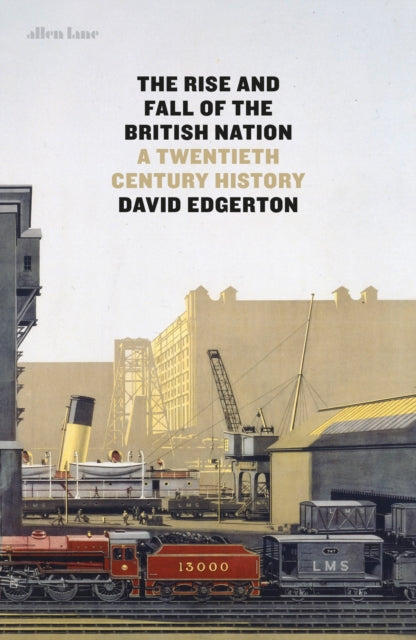
The Rise and Fall of the British Nation : A Twentieth-Century History by David Edgerton
“Forget almost everything you thought you knew about Britain in the 20th century,” said David Goodhart in the London Evening Standard. In this provocative book, David Edgerton dismantles many “received ideas” about the nation’s recent history. His central thesis is that Britain became a normal nation state only in the 1940s. Until then, it was a place apart, with a rambling empire and trading links across the globe. “Its people, ships and factories were spread all over the world; its largest wheat fields and its abattoirs were abroad.” Only after the Second World War, as its global position collapsed, did it become a real nation, by which he means “a distinctive economic, political and social unit”. The book is “a paean of praise” to the Britain of 1945 to 1985 when, contrary to received wisdom, the economy boomed (in 1973 alone, GDP rose by 7.3%) – before it reverted to “post-national openness” under Margaret Thatcher. The Rise and Fall of the British Nation “is not always an easy read”. But you won’t “find a better informed history of this country in the last century”.
This book has a “peculiar, bruising and exhausting energy”, said David Crane in The Spectator. Edgerton is determined, as he puts it, to give the historical clichés about the period a “good rattling”. The myth of postwar industrial decline is dispatched with a “Gradgrindian thoroughness”; the sentimental notions that the Second World War was a “people’s war”, and that Britain “stood alone” in the early part of the conflict, are likewise briskly dealt with. This is “political economy for grown-ups”, said Colin Kidd in the New Statesman. “Every so often a book comes along that the entire political class needs to read.” And this account of how Britain “junked its old economy and utterly reinvented itself as an export-oriented industrial power” after 1945 is one.
“Where to start with all this,” asked Dominic Sandbrook in The Sunday Times. While it’s certainly “arresting” to claim that Britain wasn’t a nation before that year, it’s only true if your idea of a nation is based largely on statistics about food supplies, imports and exports, armaments and coal. Nations exist to a large extent in the imagination – and that is a world “utterly closed to Edgerton”. It is “peculiar” to write a book about the British nation in which British culture barely appears. It seems “positively self-harming” to write one in which Scottish nationalism, Northern Ireland and Wales are hardly mentioned. This is a history “rich in facts and figures”, but drained of everything else.
